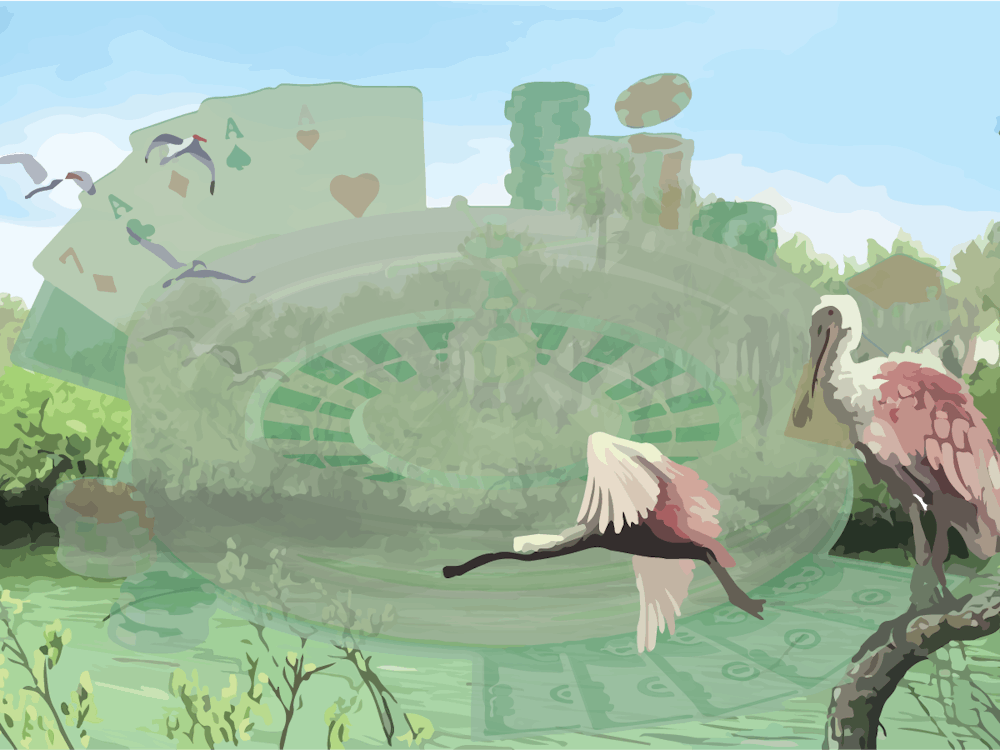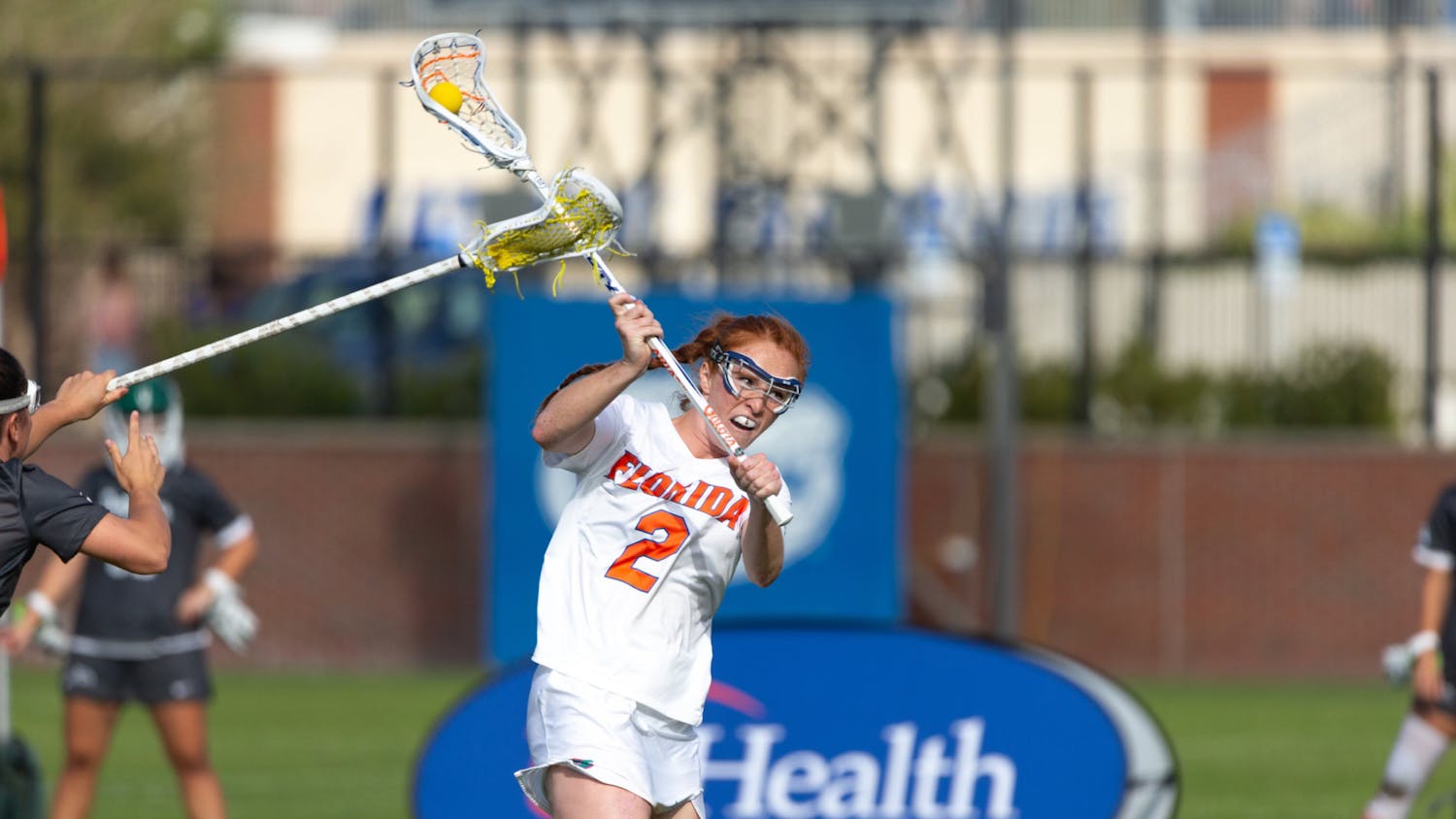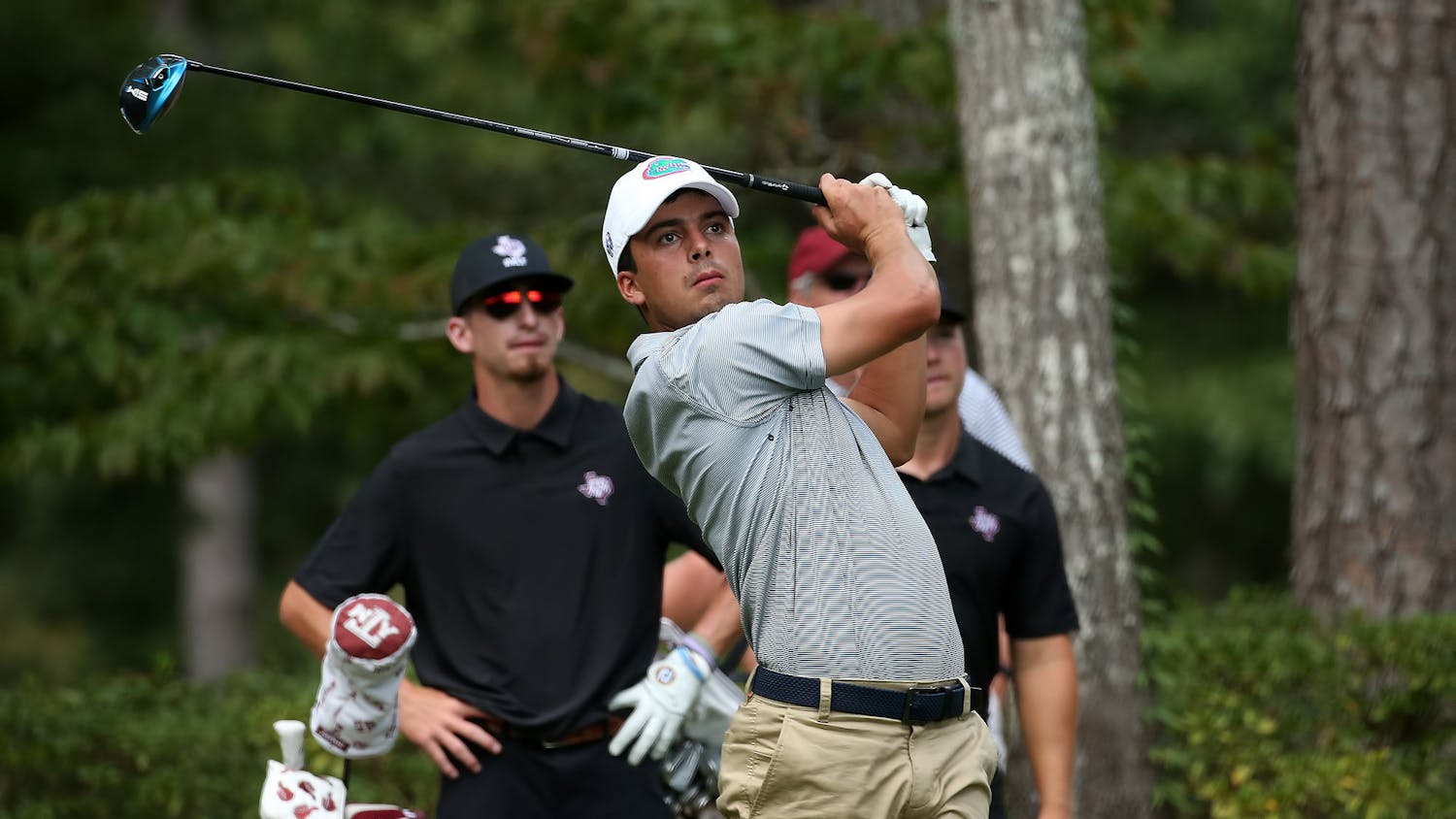As Florida’s 2024 legislative session ramps up, politicians are choosing to bet on the environment. The proposed Senate Bill 1638 could allocate millions of dollars in gambling funds to the state’s environmental resources.
In 2021, Gov. Ron DeSantis signed a gaming compact with the Seminole Tribe of Florida. The compact provided the Seminole Tribe exclusive rights in running gambling activities on tribal lands. In exchange, the tribe agreed to give $2.5 billion of its revenue to the state for the first five years the compact is in place.
Under SB 1638, 96% of these annual funds would go to Florida’s environmental resources.
Sen. Travis Hutson, R-Palm Coast, authored the bill and outlined its purposes in a Jan. 24 hearing with the Appropriations Committee on Agriculture, Environment and General Government. For the 2024-2025 fiscal year, the legislature expects to receive $384 million from the Seminole Tribe to be used for the environment.
“I could think of no better partnership with the tribe and the compact dollars than to help take that money and keep Florida beautiful,” Hutson said.
The 10 members of the appropriations committee voted unanimously in favor of the bill, passing it to the Fiscal Policy committee. Sen. Debbie Mayfield, R-Melbourne, a member of the appropriations committee, also supported the bill for its commitment to a five-year plan.
“This is going to go a long way with our water quality and our Clean Waterway Act and protecting our environment,” Mayfield said during the hearing.
The Seminole Tribe declined to comment on SB 1638. The tribe operates six casinos in Florida, and launched a sports betting app in November. In the past, the tribe has argued that its gaming operations will create over 1,000 new jobs.
The Florida Wildlife Corridor, a foundation in favor of the bill, said consistent funding from the state government is critical to conserving Florida’s environment. Florida’s wildlife corridor, or sections of land or water that connect wildlife habitats, encompasses 18 million acres of protected lands. Out of the allocated funds from SB 1638, 32% would go toward purchasing land for conservation, with priority given to lands within the wildlife corridor.
"The Florida Wildlife Corridor Foundation supports SB 1638 to utilize new and additional funds for land conservation in Florida,” said Corridor Foundation CEO Mallory Dimmitt in a statement to The Alligator. “We are excited that our state leadership is actively seeking avenues to bolster progress through state conservation programs."
Some of the revenue will also go to the Florida Department of Environmental Protection for trail management and to develop a water quality work plan. The Florida Fish and Wildlife Conservation Commission will also receive funding for land management.
FDEP did not respond for comment at time of publication, and FWC declined to comment on the bill.
Beth Alvi, the Senior Director of Policy for Audubon Florida, supported the bill during its Jan. 24 hearing. One of the most promising aspects of the bill, Alvi said, was the portion dedicated to land management.
In addition to the 32% given to purchase land for conservation, another 32% is allocated for management of that land. This allows conservationists to make sure the protected land stays in good condition, Alvi said. Land management can involve removing invasive species, prescribing wildfires and protecting wildlife, she added.
“We get all the attention when we buy land and put it into conservation,” Alvi said. “But with it comes the responsibility of being good stewards of the land.”
However, some experts worry about the Florida legislature's position on gambling. As gaming operations in the state expand, the rate of gambling addictions will climb, said Executive Director of the Florida Council on Compulsive Gambling Jennifer Kruse.
Two million United States adults are estimated to have a severe gambling problem, while an additional four to six million are considered to have a mild or moderate problem, according to data from the National Council on Problem Gambling.
FCCG runs a 24-hour anonymous helpline, 888-ADMIT-IT, which is used to provide resources to those who believe themselves or a loved one have a gambling problem. In the past decade, the rate of contacts to the helpline has doubled.
“Operating a 24/7 helpline is a lot of work,” Kruse said. “There is extensive training that is required to arm somebody with the tools necessary to respond to what are oftentimes very crisis contacts.”
That number is only expected to grow due to the compact with the Seminole Tribe and the expansion of gambling across the state, Kruse said. Yet while the number of those seeking help for problem gambling has grown, the funding to FCCG has not.
Each year, the Florida legislature redirects hundreds of thousands in funding from the FCCG, Kruse said. The current amount of funding the organization receives isn’t adequate to meet current demands, let alone the expected increase, she added.
“If there’s going to be additional revenues generated from gambling,” Kruse said. “There needs to be additional revenues allocated for problem and compulsive gambling.”
Contact Kylie Williams at kyliewilliams@alligator.org. Follow her on X @KylieWilliams99.
Kylie Williams is a second-year journalism major and a sustainability minor. This is her second semester as the environmental enterprise reporter. Outside of the newsroom, she can be found reading, baking or watching reality TV.






